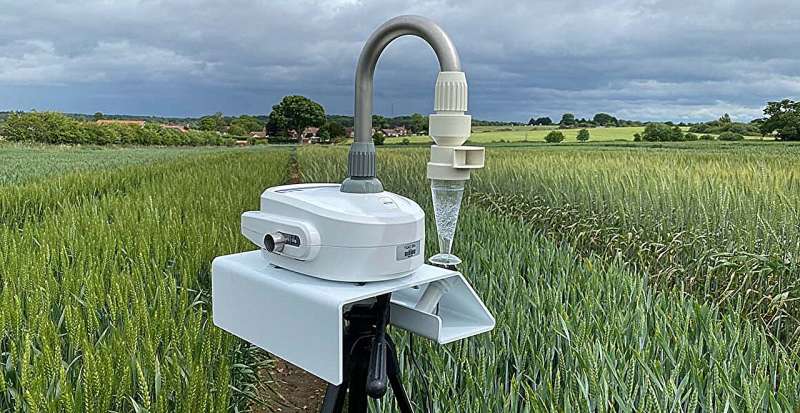New technology protects crops by testing the air for the DNA of plant diseases
Date: 7.8.2024
Plant infections can now be detected in our crops before they're even visible. By identifying the DNA in spores floating through the air, it's hoped a new technology called AirSeq can help farmers to tackle crop diseases more effectively while using fewer chemicals. Airborne DNA could be crucial to protecting our food security.
 In many cases, pesticides have little impact on stopping infections. Many diseases are only detected once plants start showing symptoms, at which point it's often too late to save them.
In many cases, pesticides have little impact on stopping infections. Many diseases are only detected once plants start showing symptoms, at which point it's often too late to save them.
Now, researchers at the Natural History Museum and the Earlham Institute have developed a new way of detecting these infections before they become a problem. Known as AirSeq, the device sucks in thousands of liters of air to identify the telltale DNA fragments of disease-causing fungi.
Testing in the east of England has shown that AirSeq can track how levels of this DNA fluctuate over the year. Dr. Matt Clark, one of the co-authors of the new research, says that this could allow farmers to take action when the risk of infection is at its highest.
"At the moment, farmers spray their crops with fungicides to make their plants inhospitable to possible fungal infections," Matt says. "But as different crops are resistant to different pathogen strains, this isn't always necessary."
Image source: The Trustees of the Natural History Museum, London.























